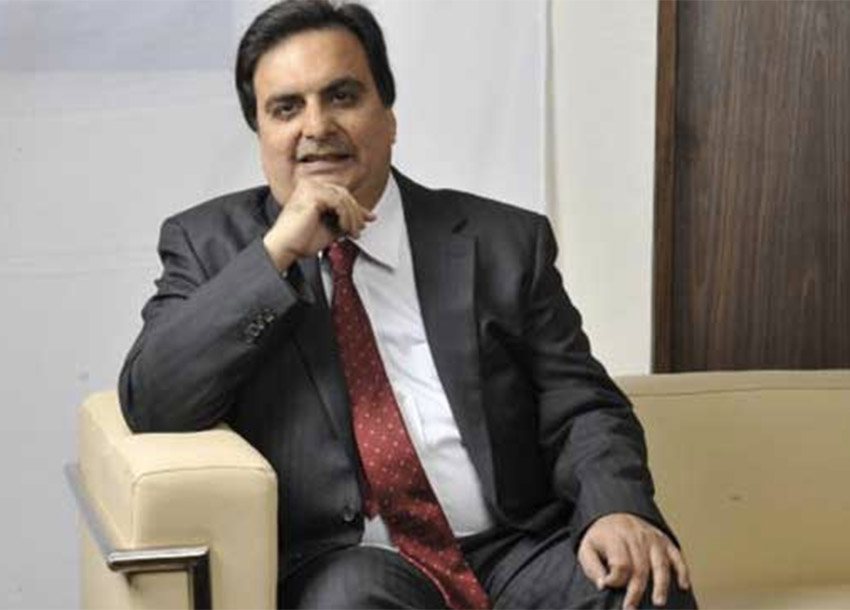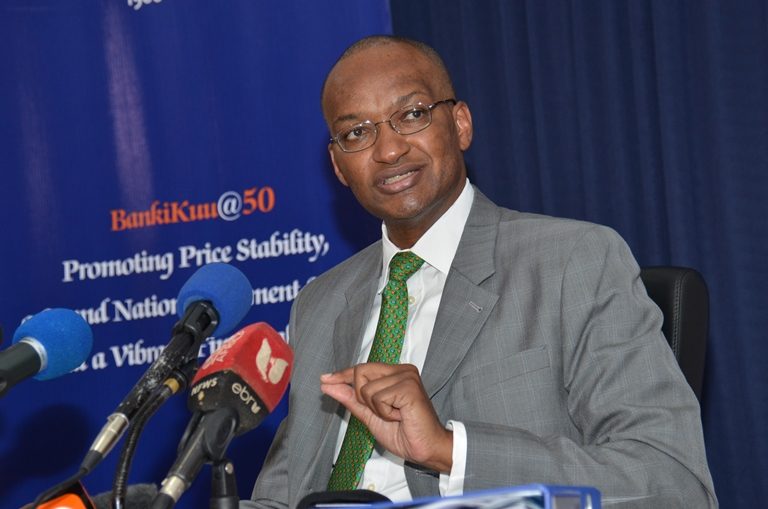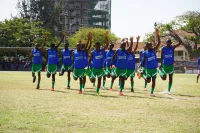Questions raised on Central Bank Governor Patrick Njoroge hardball tactics in Imperial Bank recovery
It’s nearly a year after Imperial Bank was placed under statutory management. But there seems to be no light at the end of the tunnel for both shareholders and big depositors.
While there have been frantic behind-the-scene efforts by Imperial Bank shareholders to have the bank swing back into operation, there’s what looks like a deliberate scheme by Central Bank or third-party operators working with the regulator to keep the bank under receivership.
When the bank was placed under receivership in October last year, CBK Governor Dr Patrick Njoroge promised a quick resolution of the integrity issues and resumption of operations within months. Dr Njoroge even gave himself a final deadline of June 30, 2016, after the 90-day request for extension, to release findings of a forensic audit by FTI Consulting on the circumstances that led to the Ksh34 billion fraud that brought the bank to its knees.
The deadline slipped by without word from Central Bank, further clouding recovery hopes. Reviews of documents on Imperial Bank, including the first forensic audit by the UK-based firm, show a clinical operation to frustrate efforts by Imperial Bank shareholders to have the bank reopened.
First, immediately after collapse, Central Bank of Kenya gave conditions for re-opening the bank, including an injection of Ksh10-20 billion by shareholders to cover deposits. According to documents, the shareholders were willing to raise the cash if given ample time and subject to the presentation of the bank’s state of affairs – but CBK wanted the cash within a matter of days. In their initial forensic audit, FTI had established that some staff at CBK, including the former governor Prof Njuguna Ndung’u, were compromised.
The banking regulator further tightened the valves by requiring the shareholders to also provide an additional Ksh20 billion worth of their assets to “collaterise” the unsecured debt to shareholders and W.E. Tilley, one of the companies used to siphon cash from the bank’s vaults. This was after Kenya Deposit Insurance Corporation (KDIC) had taken W.E. Tilley to court to recovery Ksh10 billion. Instead of building a strong case to ensure recovery of the monies, CBK in their proposal to the shareholders only committed to recover Ksh5 billion from W.E Tilley.
“Men of means” hitting back?
The fishmongers have taken advantage of the lost time to deny ever receiving the money, claiming in court that the letter they presented to the shareholders acknowledging receipt and the collateralising of the illegal disbursements was done in duress. Additionally, CBK also proposed an equity swap worth Ksh5 billion by the larger depositors on a voluntary programme. In total, CBK wanted between Ksh40 and Ksh50 billion to reopen the bank.
This is a huge amount by any standards, according to bank recovery analysts, and could have been set to keep the bank closed. At some point, CBK referred to the shareholders as “men of means” implying they had the capacity to folk out the amount. Other banking experts and unrelated business shareholders who have observed the issue from a distance have taken this statement to have been prejudicial, giving strong hints of a pre-determined position regarding the bank’s revival.
Imperial Bank owners themselves have claimed that the regulator had been delaying the process to frustrate recovery efforts and, possibly, kill the bank. CBK’s stance has been hard to take in especially given that Chase Bank, which was placed under statutory management in early April after it experienced a run on its deposits, was swiftly sorted out and reopened within a month.
Recovery plan receives cold shoulder
Imperial Bank shareholders’ proposal on how to revive the bank has been flatly rejected by Central Bank. On June 16th this year, the shareholders appeared before Central Bank and its receivership machinery after the regulator had cut off communications with them since November 19th, according to court documents. The stone-walling was in addition to the gag placed on the bank directors by the regulator.
At the meeting, according to an affidavit sworn by Anwar Hajee, Imperial Bank shareholders presented a recovery plan that would have seen the bank resume operations as the sticky issues were sorted out.
The recovery plan included bringing a third-party bank, preferably a listed one, to conduct a rights issue which the shareholders would underwrite. The funds raised would then be used to acquire the bank’s good assets (or good bank), including the good loan book and viable branch network.
The good bank separation would allow depositors to migrate to the new bank, securing up to 75% of their deposits as KDIC follows up on recovery without inconveniencing the depositors. CBK offered a 40% payout that was pegged on sale assets and loan.
This option was considered after the shareholders felt that CBK did not want them to participate in the recovery process and appeared not ready for an independent due diligence before the recapilisation.
But CBK and the receiver manager had their own plans. On June 21st, it appointed NIC Bank as the asset and liability consultant for the Imperial Bank. As the Asset and Liability Consultant, NIC Bank will analyse Imperial bank’s asset and liabilities portfolio to enable the KDIC to determine the options available. As part of this brief, NIC Bank will disburse, on behalf of KDIC, payment to the depositors of Imperial Bank.
Shareholders have taken issue with this, arguing that disposing part of the bank’s assets amounts to liquidation of the bank. Analysts say no bank or White knight can come in without establishing the bank’s state of affairs, which would have come out through due diligence, as the forensic audit follows the lost money. Proponents of this thought say the bank could have been revived as the forensic audit continued.
Little bank, big issues
Preliminary findings of the FTI Consulting audit showed that there were 700 suspicious accounts at the bank and at least 22,500 suspicious transactions that needed detailed investigations.

But FTI also stumbled on more startling revelations. It will be remembered that Abdulmalek Janmohamed, the bank’s managing director and powerful shareholder, died just a month before the bank was put under receivership. According to the bank’s latest annual report, before his death the deposit base of Imperial Bank was Ksh52 billion. But after his death, CBK revealed that the bank had deposits of Ksh85 billion, before factoring in Ksh2 billion it had just raised from a bond issue.
“No one knew about the extra Ksh33 billion and where it was in the bank,” a former Imperial Bank employee said, but requested not to be named due to the sensitive nature of the information. “We didn’t imagine we were such a rich bank.”
The money audit trail
In what appears like a scene from a movie, FTI Consulting discovered that Mr Janmohamed operated a parallel bank with deposits upwards of Ksh30 billion. Through the virtual bank – guarded by high-tech security walls and access restricted to only himself and perhaps the IT guy who set up the system – he would freely bring in cash and sign out more.
It’s said money moved in as frequently as it moved out and in many cases huge deposits and withdrawals amounting to hundreds of millions. With all privileges of moving and receiving cash, no one would have suspected anything was amiss. Until he passed on and the security walls came down.
That is the subject of investigations, where forensic auditors have tried to trail how the money moved in and out of the virtual bank, even as Imperial Bank went with begging bowl in hand to the market to get money from a bond.



















































![Pula Co-Founders and Co-CEOs, Rose Goslinga & Thomas Njeru. Pula provides agricultural insurance and digital products to help smallholder farmers manage climate risks, improve farming practices and increase their incomes. [ Photo / Courtesy ]](https://businesstoday.co.ke/wp-content/uploads/2021/01/Pula-Co-Founders-and-Co-CEOs-Thomas-Njeru-Rose-Goslinga.jpg)



























































What about the underhand dealings at Chase Bank? Staff in the Governor’s office have tens of millions in non-performing loans at Chase and are not paying.
The whole world is aware that the bank could have operated “under observation” by the CBK thus not inconveniencing businesses and depositors. The Directors and Shareholders accounts could be frozen and a limit on withdrawals could have been set so as not to run the bank down. Yes, there were massive irregularities but the individuals (who are known to the CBK) could have been “privately” confronted and asked to clean up and make good or face the music.
Now that the crooks are in court and have been exposed they will do their utmost to save their asses with advice from their panel of lawyers (who needless to say will also now get a good part of the 10B cake).
This whole saga from the onset has been mishandled at the expense of innocent depositors – Anyway, the KDIC and CBK are concerned for the depositors, there is no question about that and so have taken the route of appointing the NIC Bank to oversee receipts of loan repayments, rent etc so as to rake in the funds to pay off the depositors – This is a good move in the present circumstances for the depositors but not for some of the shareholder,s most of who are innocent and were unaware of the “juggling” and were willing to do their best to reopen the bank.